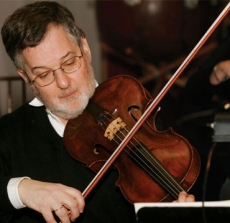 I’ve always loved listening to music from my earliest years. I have perfect pitch and synesthesia, meaning I associate colors with different keys. When I was a toddler, my mother played phonograph records for me. When I would ask for the red or the green music, Mom would write down the colors on the record albums so she would know for the next time. She told me later that it had nothing to do with the color of the labels in the center of the 78’s or anything else apparent to her.
I’ve always loved listening to music from my earliest years. I have perfect pitch and synesthesia, meaning I associate colors with different keys. When I was a toddler, my mother played phonograph records for me. When I would ask for the red or the green music, Mom would write down the colors on the record albums so she would know for the next time. She told me later that it had nothing to do with the color of the labels in the center of the 78’s or anything else apparent to her.
I began playing the viola at age 10, in 4th-grade public school music class. The music teacher discovered my perfect pitch (I didn’t think it was particularly remarkable that I could tell him the notes he played on the piano without looking), and he decided I should play the viola because it was not usually a melody instrument and my pitch identification might be useful.
Playing in orchestra and chamber music was always very important in my school years, and I took private lessons. Playing was a source of solace for me and I’ve always been particularly drawn to pieces in minor keys. The profoundly expressive beauty of sadness, you might say.
My parents encouraged me to pursue music as a serious avocation, and they also assured me that music was no way to earn a living. Of course they were right! I went to Oberlin College as a liberal arts major, choosing that school because the Conservatory was literally across the street. Graduating with a social science degree, I didn’t know what I would do next. I began studying viola with William Lincer in New York and practiced intensively, continuing lessons with him at the Juilliard School.
At Juilliard I discovered Albert Fuller, Aston Magna’s founder. In 1974, the second year of the festival, Albert invited several graduate students, including myself to Great Barrington. That was my entry into early music. We took off our chin rests, put on gut strings, tuned our instruments down and tried out some baroque bows. We floundered around at first, and our teachers had only a bit more experience with baroque instruments than we did, but everything sounded so different and exciting! I felt like I was on an expedition and there was so much to discover about musical treasures we had known for years, as well as other music we were hearing for the first time. I had many mentors at Aston Magna, but Albert, with his incredible musical imagination was the most important one. I became hooked on early music because it stimulated my intellectual curiosity — the music was so much more convincing when played on the instruments the composers were writing for and in the language they knew, including style, tempo, articulation, etc. As Albert would say: we are so lucky because every day we get to work with geniuses (Bach, Handel, Haydn, Mozart) and ask them why they wrote something a particular way. It’s been a most rewarding challenge!
David Miller performs this weekend with Aston Magna, in the “Mozart’s Diversions” weekend.
